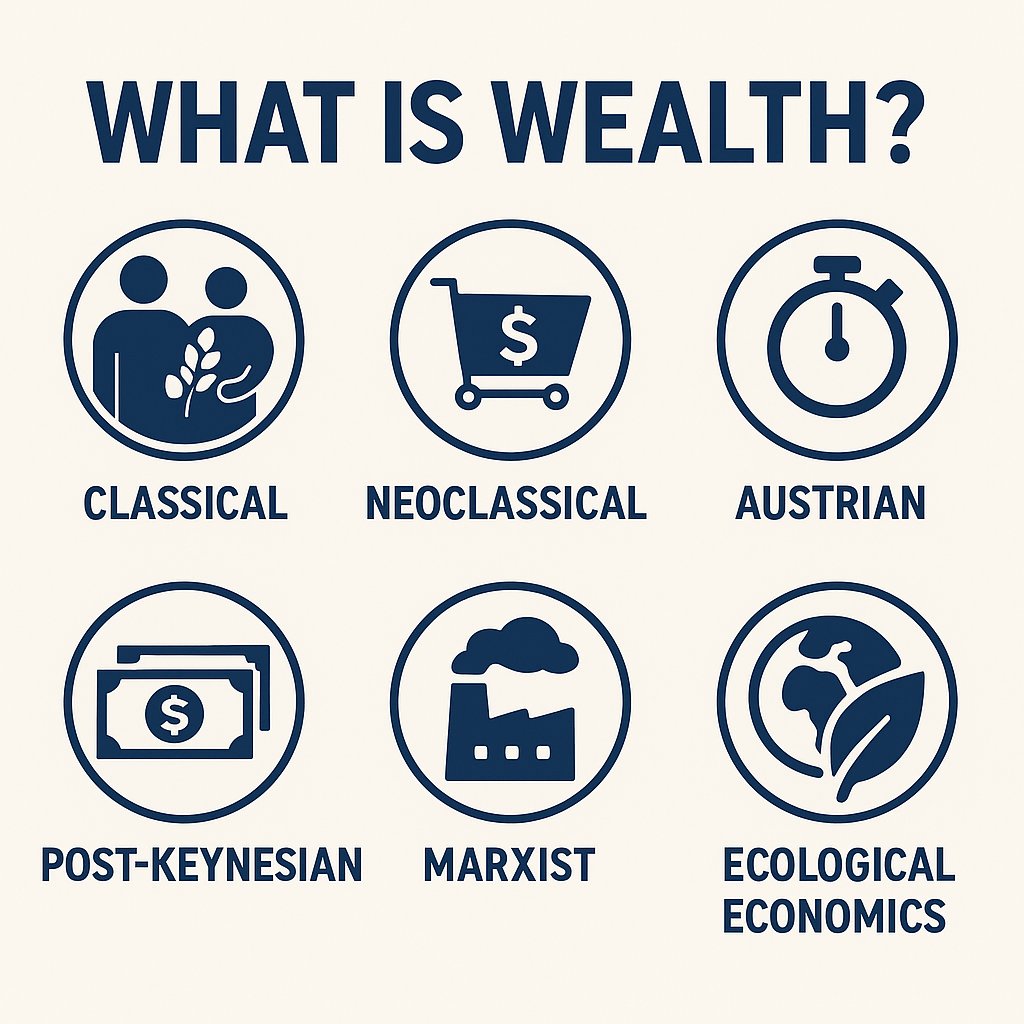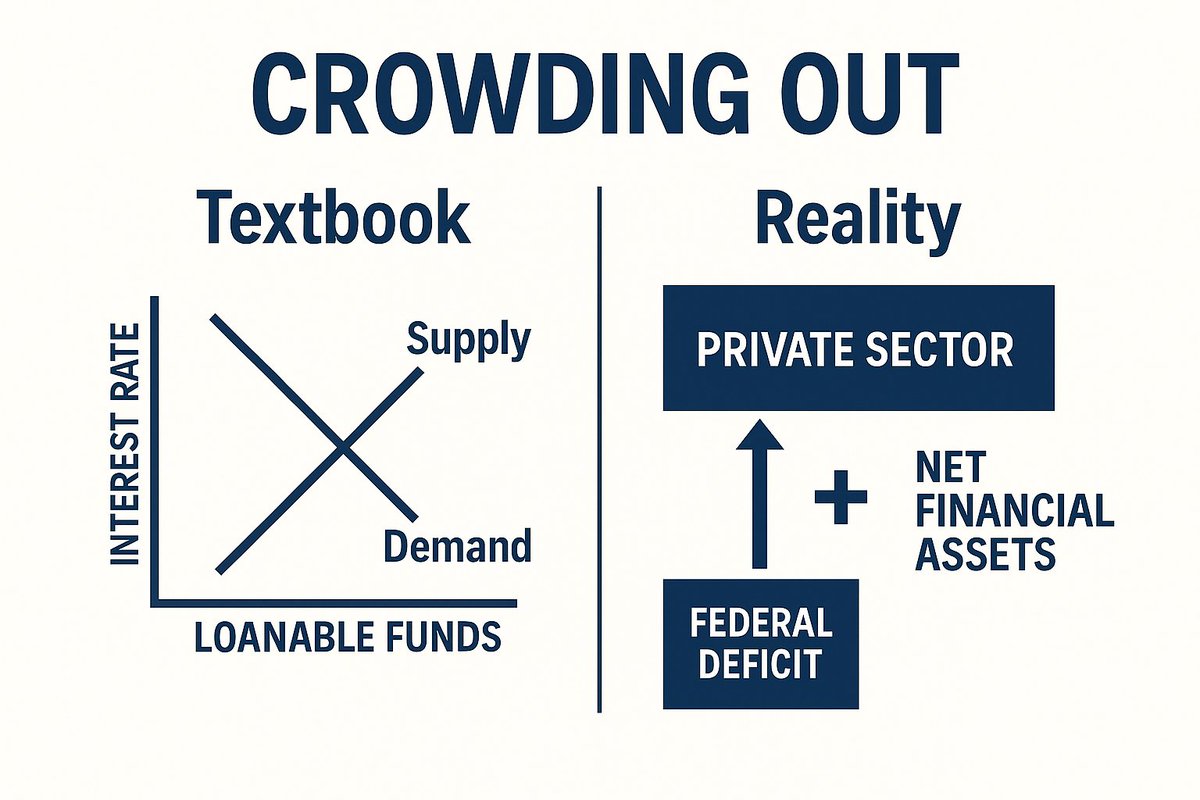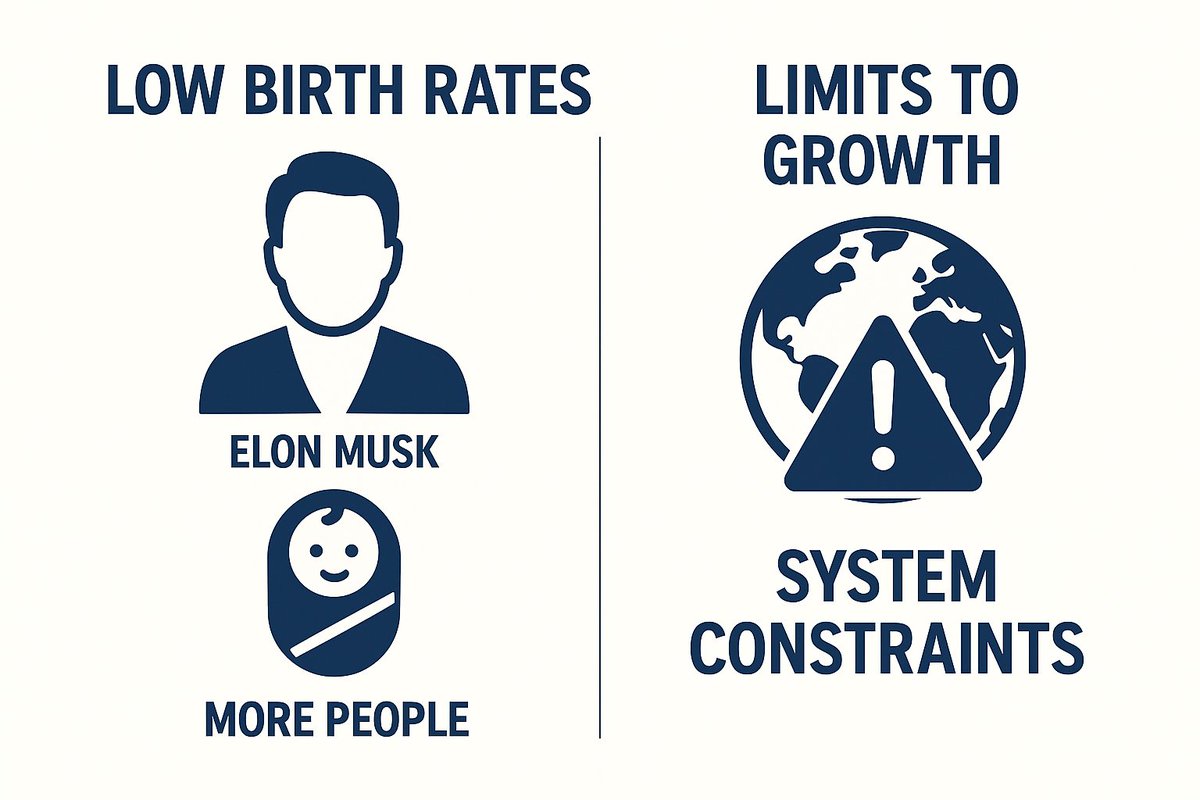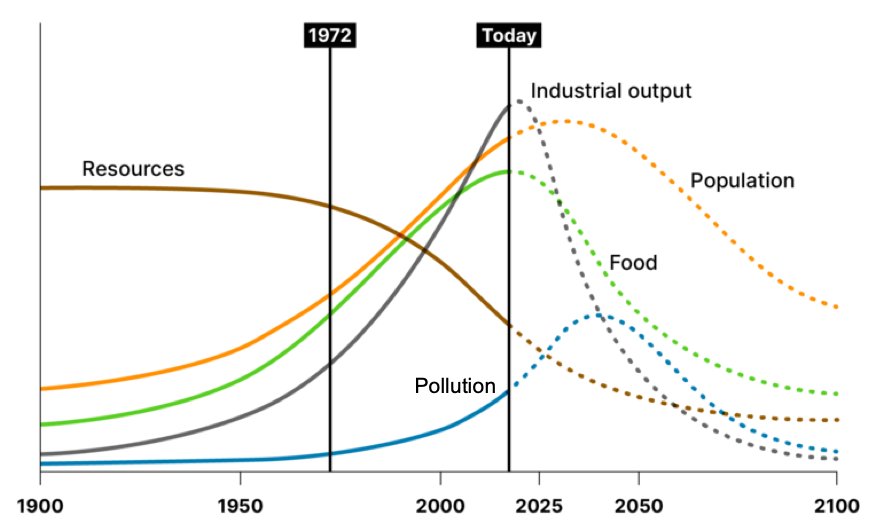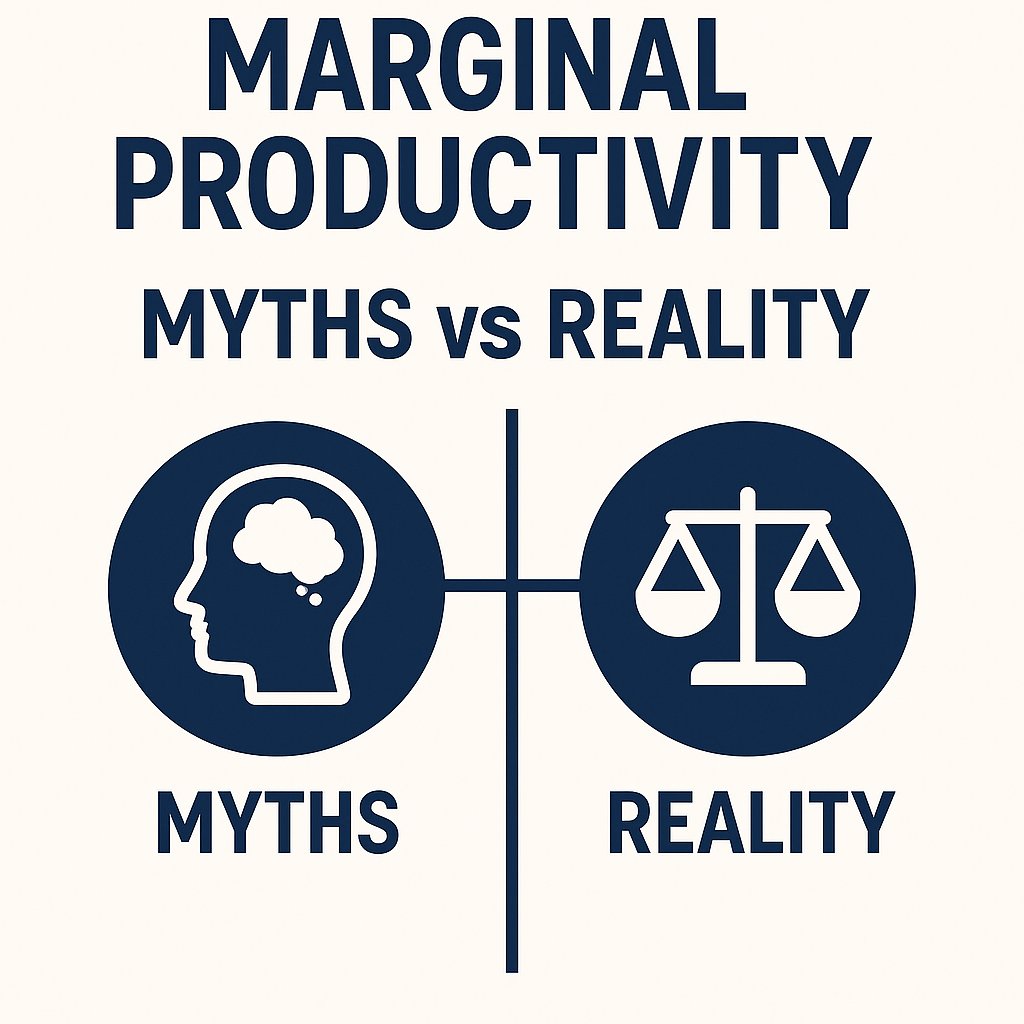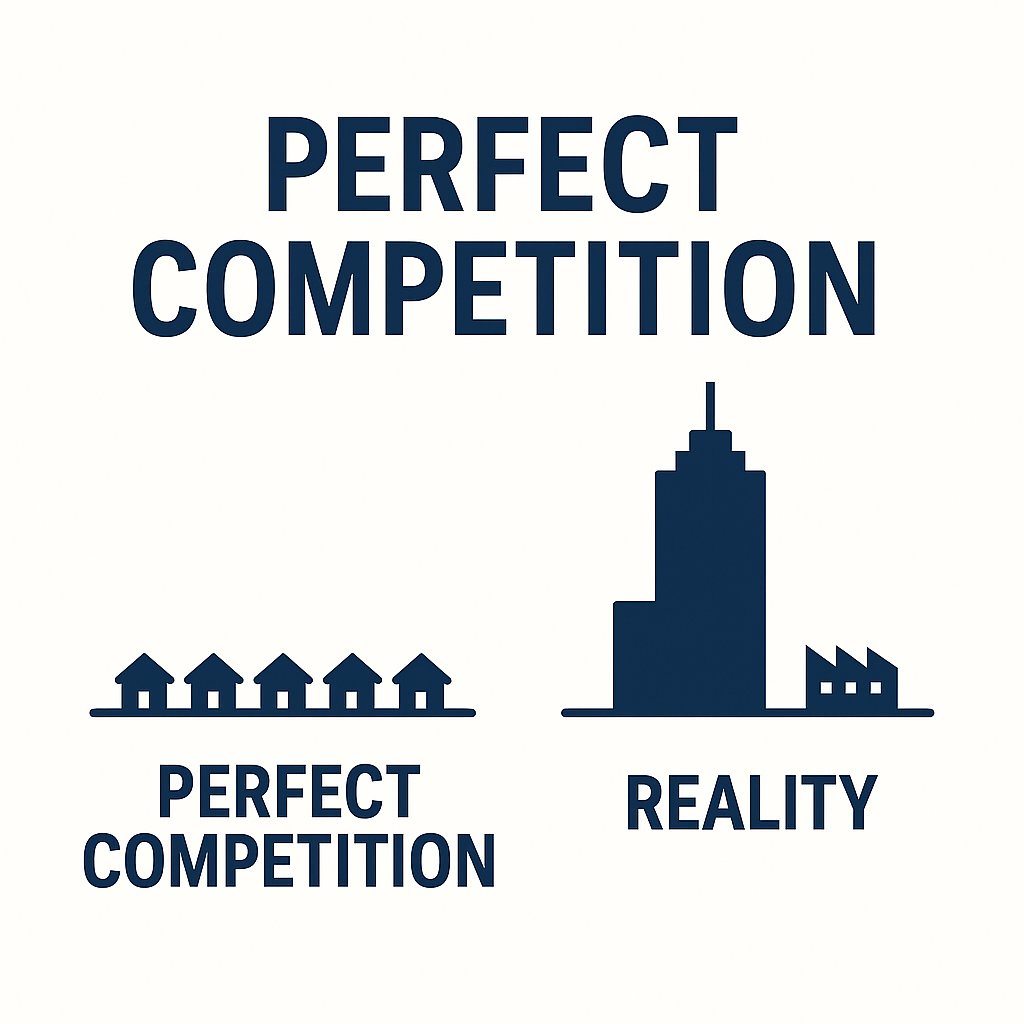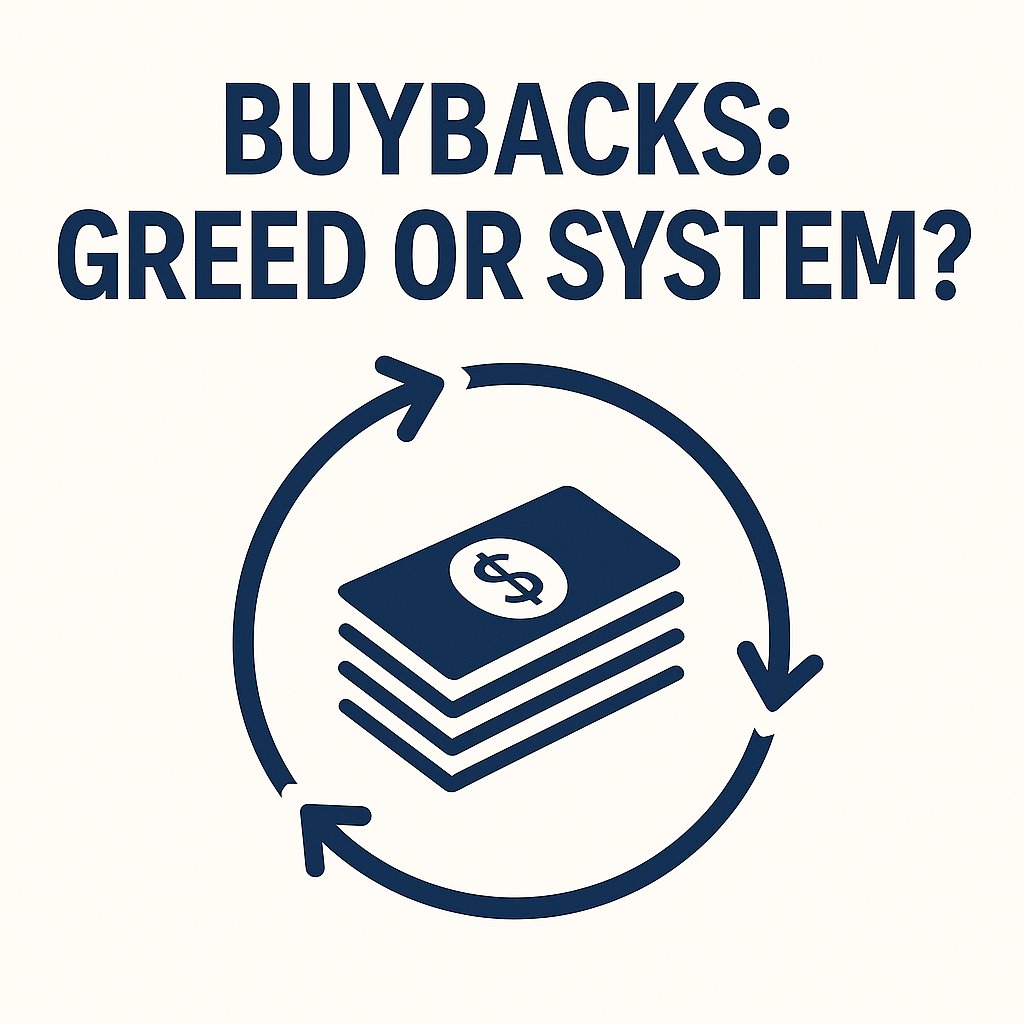Classical economics (Smith, Ricardo):
Wealth = produced surplus.
It comes from labor applied to nature, creating output beyond subsistence.
The central issue is distribution: who gets profits, wages, and rents?
🧵2/13
Wealth = produced surplus.
It comes from labor applied to nature, creating output beyond subsistence.
The central issue is distribution: who gets profits, wages, and rents?
🧵2/13
Neoclassical economics:
Wealth = utility embodied in goods & services.
Focus shifts from production to exchange.
Here, wealth is whatever satisfies preferences, measured in prices.
🧵3/13
Wealth = utility embodied in goods & services.
Focus shifts from production to exchange.
Here, wealth is whatever satisfies preferences, measured in prices.
🧵3/13
Marginal Productivity Theory:
Each factor earns what it "contributes."
Labor → wages, capital → returns, land → rent.
It presents wealth distribution as fair, but ignores power, institutions, and inequality.
🧵4/13
Each factor earns what it "contributes."
Labor → wages, capital → returns, land → rent.
It presents wealth distribution as fair, but ignores power, institutions, and inequality.
🧵4/13
Austrian economics (Menger, Böhm-Bawerk, Hayek):
Wealth = subjective value.
Rooted in time preference, capital structure, and individual choice.
Markets reveal value through prices, but abstract away from power and institutions.
🧵5/13
Wealth = subjective value.
Rooted in time preference, capital structure, and individual choice.
Markets reveal value through prices, but abstract away from power and institutions.
🧵5/13
Keynesian economics:
Wealth isn't stockpiles, it depends on effective demand.
Idle resources aren’t wealth.
Wealth exists when demand activates production and employment.
🧵6/13
Wealth isn't stockpiles, it depends on effective demand.
Idle resources aren’t wealth.
Wealth exists when demand activates production and employment.
🧵6/13
Post-Keynesian economics:
Wealth = financial claims shaped by money and credit.
Banks create assets and liabilities.
Net wealth arises when government deficits add safe financial assets to the private sector.
🧵7/13
Wealth = financial claims shaped by money and credit.
Banks create assets and liabilities.
Net wealth arises when government deficits add safe financial assets to the private sector.
🧵7/13
Marxist economics:
Wealth = surplus value extracted from labor.
Financial wealth often represents "fictitious capital" resting on real exploitation.
Wealth is inseparable from class power and control over production.
🧵8/13
Wealth = surplus value extracted from labor.
Financial wealth often represents "fictitious capital" resting on real exploitation.
Wealth is inseparable from class power and control over production.
🧵8/13
Monetary & financial perspective:
Wealth = claims on others.
Stocks, bonds, real estate are distributional, one person's asset is another’s liability.
True at both household and global balance-sheet levels.
🧵9/13
Wealth = claims on others.
Stocks, bonds, real estate are distributional, one person's asset is another’s liability.
True at both household and global balance-sheet levels.
🧵9/13
Ecological economics:
Wealth = natural + human systems capacity.
GDP can rise while soils, water, and climate collapse.
Real wealth = sustainability of the system that supports life.
🧵10/13
Wealth = natural + human systems capacity.
GDP can rise while soils, water, and climate collapse.
Real wealth = sustainability of the system that supports life.
🧵10/13
National accounts vs households:
For households, wealth = net worth.
For the nation, gov deficits = private surpluses.
But ecological wealth may shrink even as financial wealth rises.
🧵11/13
For households, wealth = net worth.
For the nation, gov deficits = private surpluses.
But ecological wealth may shrink even as financial wealth rises.
🧵11/13
So when you hear "wealth creation," ask:
–Are we talking utility?
–Surplus production?
–Financial claims?
–Ecological capacity?
The answer depends on the school — and each serves its own politics.
🧵12/13
–Are we talking utility?
–Surplus production?
–Financial claims?
–Ecological capacity?
The answer depends on the school — and each serves its own politics.
🧵12/13
Wealth isn't just numbers in accounts.
It's resources, power, and sustainability.
Textbook definitions hide this. Critical schools make it visible.
🧵13/13
patreon.com/c/relearningec…
It's resources, power, and sustainability.
Textbook definitions hide this. Critical schools make it visible.
🧵13/13
patreon.com/c/relearningec…
• • •
Missing some Tweet in this thread? You can try to
force a refresh

